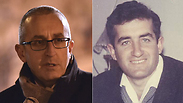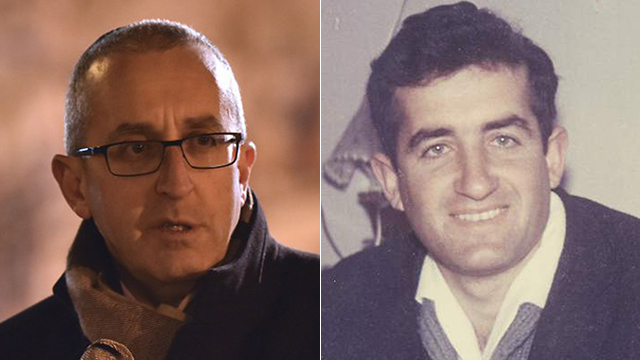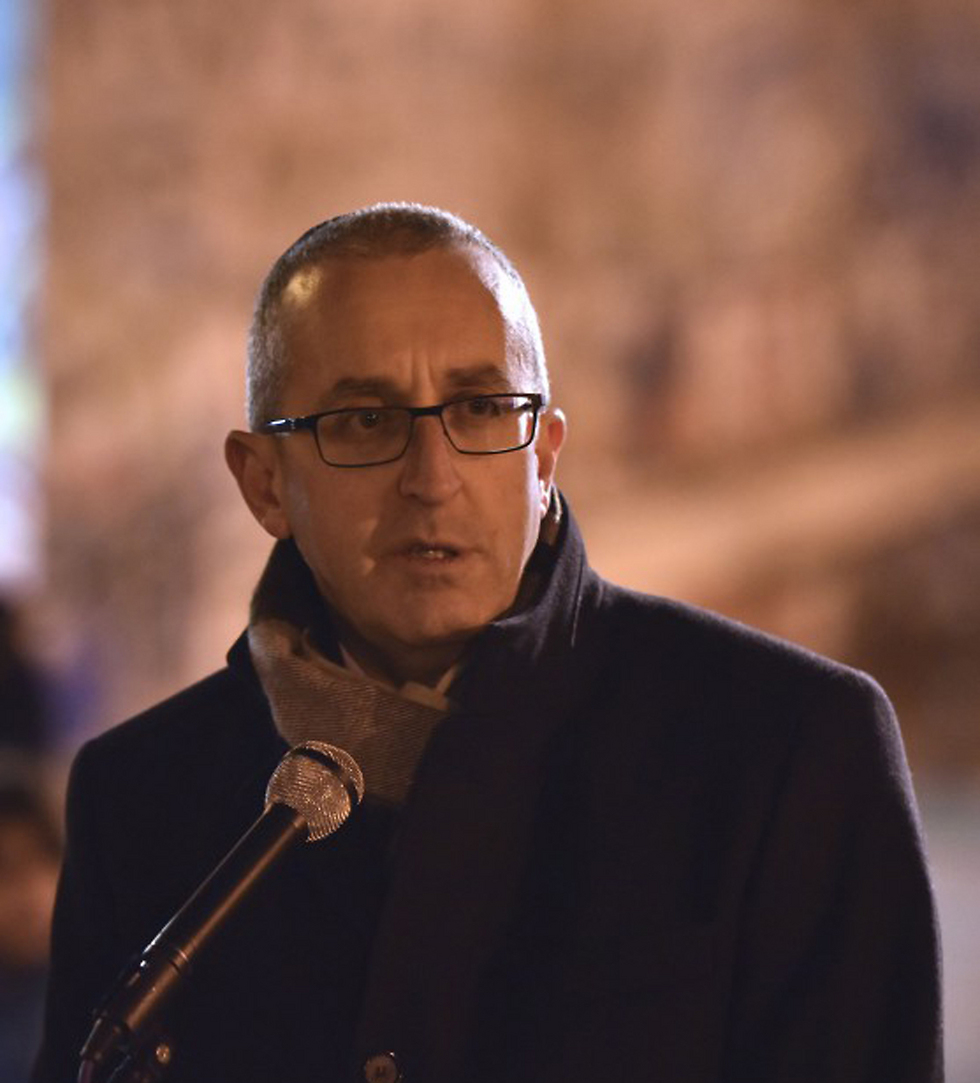
Zvi Vapni, 54, the Israeli ambassador to Slovakia, lost his father Moshe Vapni, who served as a liaison in the Armored Corps in the Six-Day War and was killed in a battle near Rafidim. His father was 31 years old and left behind a widow and two children: Zvi, who was then three and a half, and a sister who was only eight months old. At the time of his death, Moshe Vapni was the principal of a school in Ramat Gan, which has since been named after him—'Moreshet Moshe' (which translates as "the legacy of Moshe").
"I remember very little of him," said Zvi Vapni, who before his tenure in Slovakia was the Israeli ambassador to the Philippines. "I remember scenes, as much as a three-and-a-half-year-old boy could possibly remember, but there is a memory, it's not completely gone. I don't remember the day we were told, my mother told me about it. At that age, everyone is trying to protect you; they don't tell you things that will shock you and you grown up into this void. Bereavement occupies you daily and any bereaved family member would tell you that. … I was three and a half when I lost my father, and without using big words, it pretty much shapes your life."
Is there a special burden for a bereaved family member to represent the state abroad?
"In the past, I would never mention my personal anecdote, and only in recent years have I allowed myself to speak up. Yesterday, I gave a speech at the Memorial Day event in Slovakia and told of my father so that people would understand the meaning, especially abroad; How immediate it is, how real, how significant the number of fallen soldiers is when every third or fourth family either lost a loved one or at least know a fallen family member. It makes the whole story more personal. Once you say, 'My father was killed in the Six-Day War,' then it is no longer the 'fallen.' We know that when you make it personal and private, it is more comprehensible. The moment I tell my story, it connects on a more personal and immediate level."
Are there any implications for you as a diplomat, who needs to defend Israel abroad, to having paid such a hefty personal price in losing your father?
"I don't refer to it as having paid a price. It's a heavy price, but every loss is surrounded by a heavy price, siblings and an entire family that receives a heavy blow. When you look at things from my perspective, on everything that falls under this great Israeli project—you have a personal stock in it. Israel's existence should not be taken for a trifle, once you look at it from the perspective of a bereaved family member. That's not to say that other people care less, but it gives you a point of reference, to say 'we have experienced the greatest pain that can stem from the struggle for the existence of the State of Israel, and therefore it is important for us that it continues to exist and grow stronger."
Why didn't you mention the fact you are a bereaved child in your past speeches as a diplomat?
"I would mention it when I met with friends, but not in public forums. I wasn't comfortable with it," he said, adding: "From the moment I became an ambassador that changed. I used to be a diplomat in Los Angeles, and there is a very big memorial event over there. I would light a candle and say Kaddish, and whoever got it, got it. I didn't hide it, but I also didn't walk around with a flag saying, 'Look at me, I am a member of a bereaved family."'
"Why was it important to me as an ambassador? Because I felt the need to turn this thing into something that people would feel on a personal and emotional level," said Vapni.
The school that used to be headed by Moshe Vapni commemorated Memorial Day on Sunday with a ceremony.
"My father was an educator. … The school is holding an annual event marking the 50th anniversary of the war and he is mentioned along with the other fallen teachers and students."
(Translated and edited by N. Elias)


















